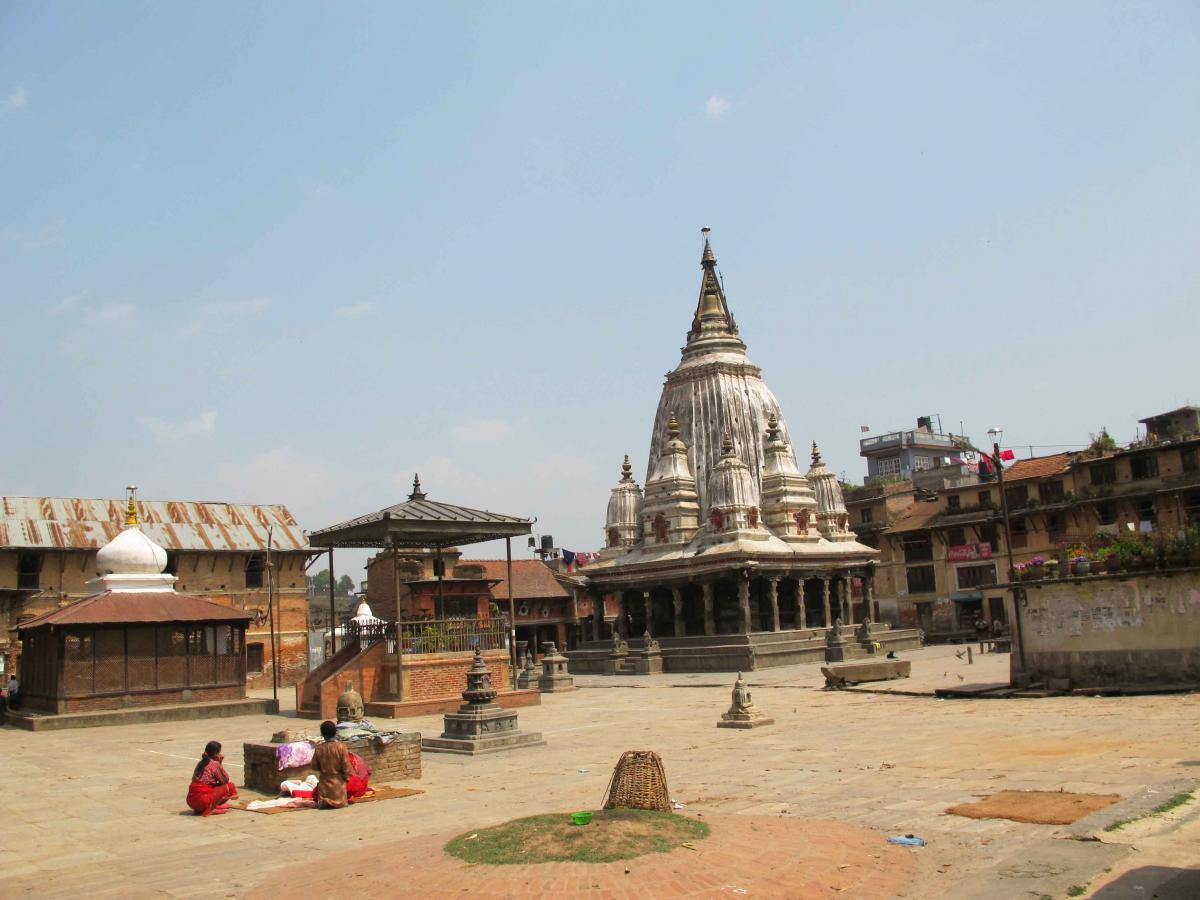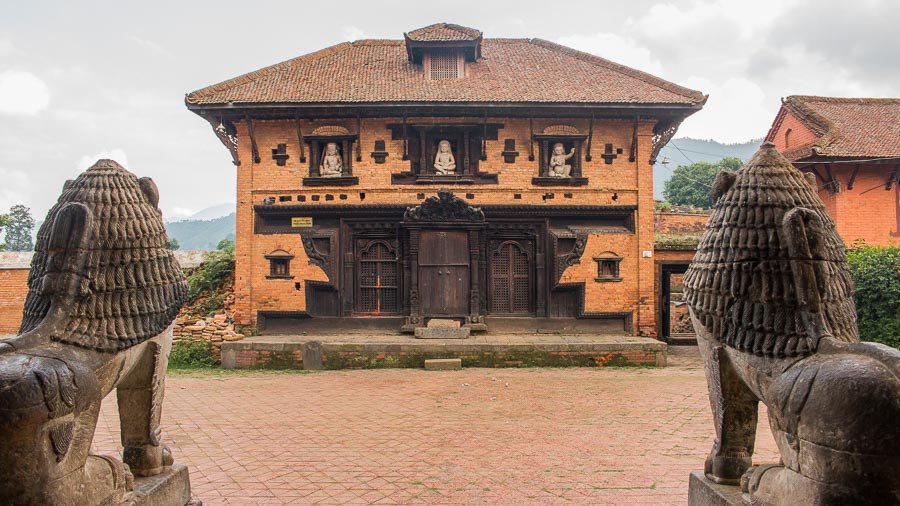Story of Machindranath & Bungamati
A 12 year long drought ravaged Kathmandu valley and killed thousands. Its is said; rivers, lakes, ponds and wells succumbed to the drought. It was finally realised that Gorakhnath, a sage and devotee of Machindranath, in desperate wish to receive blessing from his Guru decided to get his lord’s attention and began his meditation on a cushion of 9 powerful serpents whose duties were to cause rain in the valley. Gorakhnath anticipated that the compassionate one would not be able to ignore the plight of thousands of people and hence, eventually grant him an audience.
After a thorough search, it came to light that Machindranath was reborn as 108th son of King Sashi of Yakshya Desh in Assam, India. Soon after the finding, King Narendra Dev from Bhaktapur commissioned a high priest named Bandhudutt and a farmer to follow him to Assam. Along the road they were joined by another powerful serpent, Karkot Naga who would protect them against the supernatural impediments. At a location near Assam, Bandhudutt performed intricate rituals and recited powerful mantras to entice Machindranath to wake from his meditation. Despite all the attempts by the lord’s mother to keep him, Machindranath heeded to the mantras and transformed himself into a black bee to fly into the golden vessel of Bandhudutt. With invoked aid of four Bhairabs, all demons and their king capitulated and allowed the party to leave for Kathmandu valley.
Near Nakkhu river, under a ceremony, the bee was released and as expected, Gorakhnath came to pay homage. The released serpents quickly sent torrents of rain over the parched land. Bhairab arrived at the scene and immediately screamed “Bu”, which means Home in Newari. A town was commissioned immediately and the Golden vessel enshrined inside the new Temple of Rato Machindranath.
An alternative legend also claims that Machindranath revered the named bestowed to him by the local inhabitants, Bunga Deo and Hence, the name of the town. The town itself had managed to maintain its local culture, architecture and lifestyle of the old Newars. Nearly 80% of the household earn their living by wood-carving. Perhaps due to the fact that the famous great chariot is built in Bungamati, wood carver still have a significant place in the community, while the rest of the world are heading globalisation and consumerism.

Origin of Karunamaya (Machinadranath)
Actual history is mostly a mystery. This goes for history of all places on earth and all cultures and faiths. Adoption of the Scientific Method today guides one more closer to the truth. Whatever the truths, mythologies are usually more significant being they are historically more widespread, interesting to share and take in but mostly because they shape psyche, social behavior and identity of the masses.
Manifestation of combination of powers of four deities, of which three are now widely regarded as the three most powerful ones: Shiva, Brahma and Vishnu, plus the every present God, Surya – the sun is personified in Karunamaya himself. He is the god of Sahakal (times of prosperity & abundance) and in old Buddhist scriptures he is regarded as the fourth Buddha along five that represent the five elements. Historians attributes this deep reverence for the deity as God of Rain and provider of food is representative of extremely high level of dependence in farming in this isolated valley in the middle of Himalayas.
The folklore was passed on to members of HoneyGuide Apps by a local Pujari at Machindranath temple. Yagya Ratna Shakya is an eager advocate of his rich culture and history. His recollection of the lore asserts that the Lord’s first presence in Kathmandu valley was as the child of a great Tantrik (Shaman’s who practised black magic) who resided in Swayambhu, Shantikar Bajracharya. The tantrik, who is by default required to keep the tricks of his trade secret kept eloping from his residence on regular nights, apparently to an isolated temple in Mhaipi. His 8 year old curious child began following his father without him aware of the fact, even though the child never actually got to witness what exactly his father was engaged in. The Tantrik eloped to perform various rituals and to meditate to reach a higher level of attainment in the world of black magic.
Impressed by his conviction, Yogamber devi appeared before him and promised to grant Shantikar his wishes and ordered him to comeback on a Thursday night alone with proper offerings. In excitement and happiness Shantikar set off to Mhaipi again at night but this time in less vigilant manner and also forgetting to bring along the offering along with him. Upon reaching the temple at Mhaipi and meeting the Goddess, his elation quickly hammered down by the goddess who was incensed by the presence of an unwanted companion, Shantikar’s son hiding nearby who finally managed to get close enough. Trying not disappoint an ardent devotee, she was enrage more to learn the lack of offerings.
She demanded the life of the innocent child both as a punishment for Shantikar and also fulfill her promise to Shantikar by asking him to complete the initiated process by using what was available to offer. The child begged the Goddess to overrule his father’s plea for mercy and consoled his father to obey the Gods for it would be for everyone’s good. The child apparently was the incarnation of the God of Compassion and lived up to his belief.
The child was reborn as 108th son of King Sashi of Yakshya Desh, in Land of Half-Demons, now in modernday Assam, India. A feared kingdom of fierce and proud warrior people, Yakshya Desh’s only powerful source of compassion was Machindranath. He had initiated a long Meditation and would be unable to see his devotees for a while.









